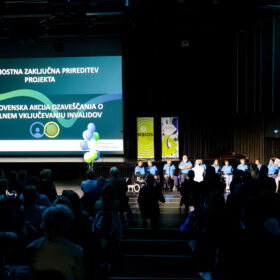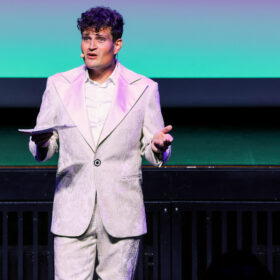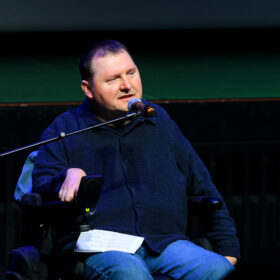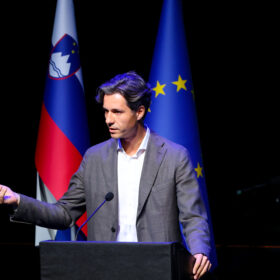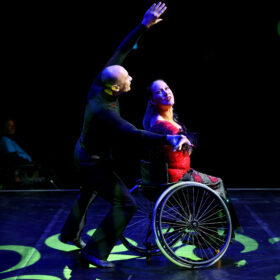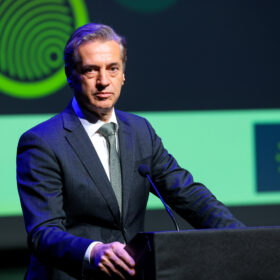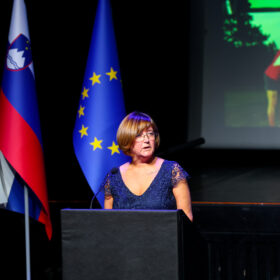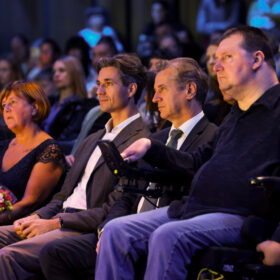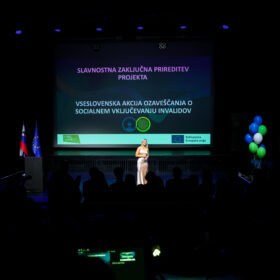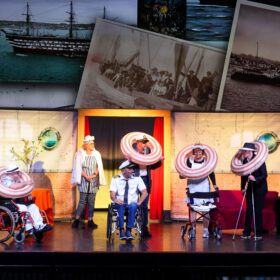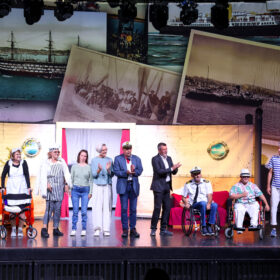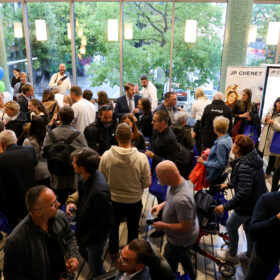The ceremonial program began with a performance by the choir of the Association of Paraplegics of the Ljubljana Region, Maček v žaklju. The emotional highlights were provided by parap dancer Martina Smodiš with her dance partner Roman Maček, young singer Vita Renko, and participants of the Mini School of Performing Arts.
ChatGPT said:
Secretary General of NSIOS and project coordinator, Mag. Mojca Vaupotič, highlighted during the presentation of the results: “Through various activities, we aimed to draw attention to the importance of equal opportunities, accessibility, and respect for diversity—above all, we wanted to give a voice to those whom society too often overlooks.”
The centerpiece of the campaign was the traveling photographic exhibition A Life No Different by Primož Lavre, which portrayed 25 individuals with various forms of disabilities. The photographic stories traveled through public spaces, on buses, and on jumbo billboards across Slovenia, and they are also featured in podcasts, numerous interviews, and media stories.
The project also included support for the European Disability Card, a Mini School of Performing Arts, workshops for children and youth, and an art competition that received as many as 109 entries. Their sincerity and imagination demonstrated that the future can be built on openness and compassion.
The project also attracted international attention—first in Poland, then in Spain and Lithuania, and most recently at a United Nations meeting in New York. “I believe the campaign has garnered so much interest precisely because it does not remain at the level of words. With this project, Slovenia sets standards and shows the way to being inclusive,” emphasized Vaupotič.
For everyone whom the project has touched in any way, the thought of the charming host of the closing event—and NSIOS colleague—Gašper Oblak resonates: “Every person is, in essence, equal and does not live a life that is completely different—because they carry dreams, longings, and the desire for a full life. Despite the differences that shape us, in the end, we are all human and all for one another.”
And if the goal of the project was to break down prejudices and encourage inclusion, the evening at Šiška proved that this goal has largely been achieved.
